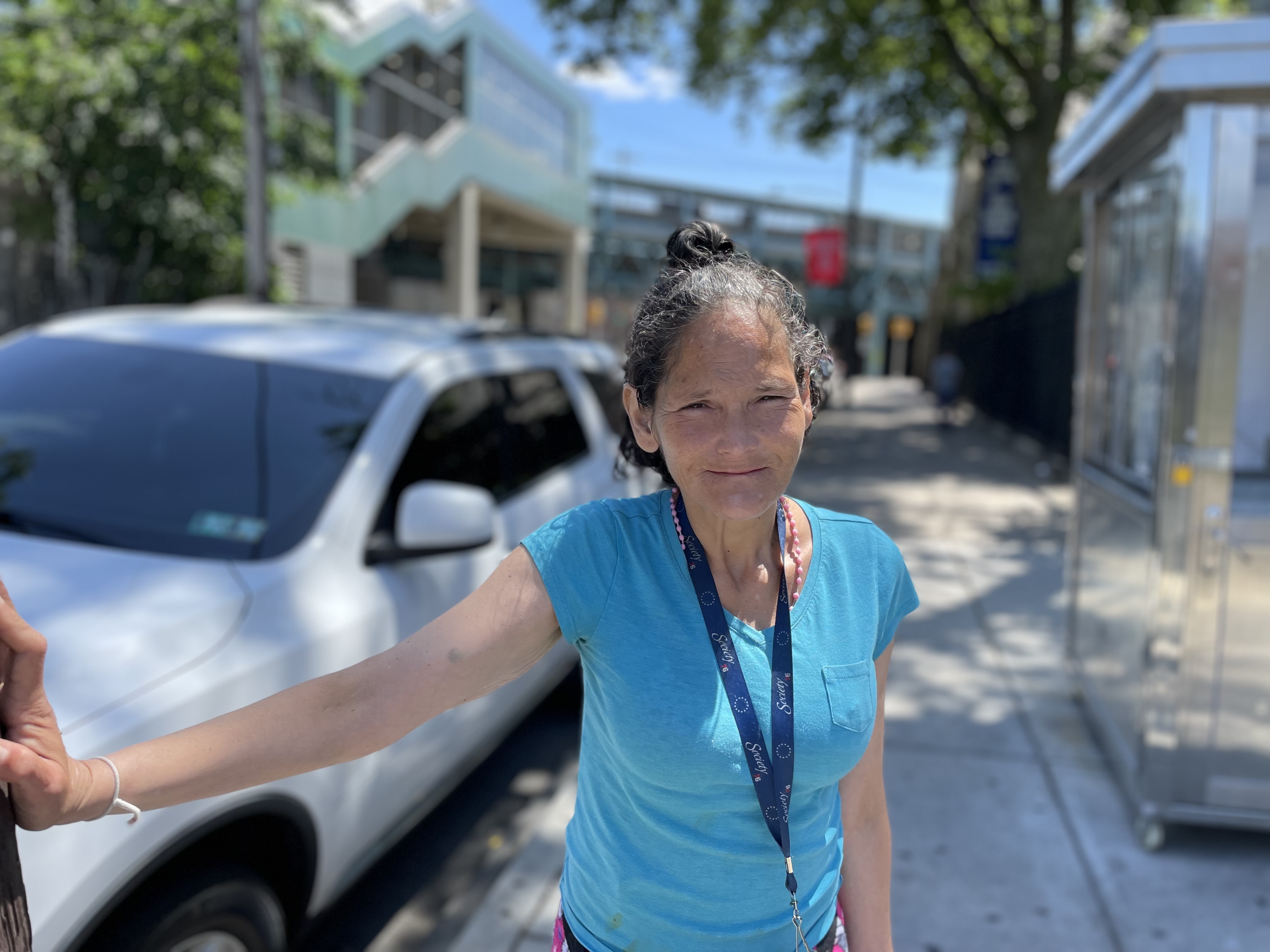
When, for the first time, Crystal and her husband have a small apartment of their own, they’re having a big party and everyone from Prevention Point Philadelphia is invited: Dee, Tamica, David, Ripley, Naomi… the list is long and growing. These are the people who changed her life, and most likely saved it.
She’ll make some traditional Puerto Rican dishes, like roast pork and arroz con gandules (rice with peas). She’ll tell everyone about her job and her neighbors and the every-day things many of us take for granted.
“I can’t wait to be able to cook in my own kitchen and come home from work and put my feet on the sofa and watch a movie cuddled up with my husband and just be happy to be in my own home,” says Crystal, 43. “I can’t wait.”
"We’ve seen a lot of overdoses. We’ve seen people shot right in front of us."
This all once seemed impossible. Raised by a mother with substance use issues, Crystal was raped at 13 and started using crack cocaine at 14. She ran away from home after her uncle died in her arms. She began using heroin when she was 18.
Crystal and her husband of 15 years, Peter, came to Philadelphia about four years ago, sleeping on city sidewalks or alongside busy highways or in abandoned houses. Most passers-by, she says, “look down at you because you’re homeless and a drug addict… “It’s like, ‘You bum, get a job.’”
“We’ve seen a lot of overdoses. We’ve seen people shot right in front of us,” Crystal says. “Getting high is not a life for anybody. I wouldn’t wish it on my worst enemy. If I’d known at the beginning what it was like, I wouldn’t have tried it. If you don’t get killed by the drugs, you get killed by the drug dealers or kids want to set you on fire because you’re homeless.”
Crystal knew about Prevention Point while she was living outside, but she viewed the organization with suspicion.
“What are these people up to? It’s not like we’re paying them. What’s the end game plan?” was what she thought of the outreach workers she met. Now, she says, she knows why they do what they do: “It’s just that they really care.”
The couple often slept near Prevention Point’s main building, so workers became concerned if the couple weren’t seen for a few days.
“Having a safe place to stay gives me the energy I need to stop using.”
Once, Crystal says, the woman who is now her social worker drove up and down the streets of Kensington for two or three days looking for her. “She wouldn’t stop until she found me,” Crystal says. “She went out of her way for me. I’ve never known anyone who would do that. She made me like Prevention Point because they really care for the people they work with.”
With the organization’s support, Crystal and her husband are starting their recovery process with the help of Suboxone. They’ve lived in Beacon House for about five months, and it’s the first time Crystal has had a steady roof over her head since childhood.

“That’s good because I’m not getting any younger and sleeping on streets is hard, especially if you have a bad back,” she says. “Having a safe place to stay gives me the energy I need to stop using.”
Crystal would like to hold a job, and Prevention Point helped her obtain copies of her birth certificate and social security information.
Everything’s looking up, Crystal says. Recently, she received a message via Facebook from the son she’d offered up for adoption when she was 13. He’s now 30 years old, in the U.S. Army, and he wants to meet her. Her two younger sons—ages 13 and 16—are staying with relatives. She wants to connect with them as well, but she knows that she can’t do that until she feels more stable.
“I go to Prevent Point two or three days a week,” Crystal says. “They do a lot of good stuff.”